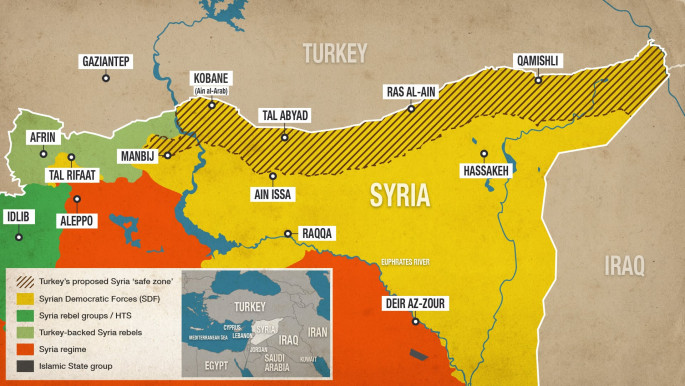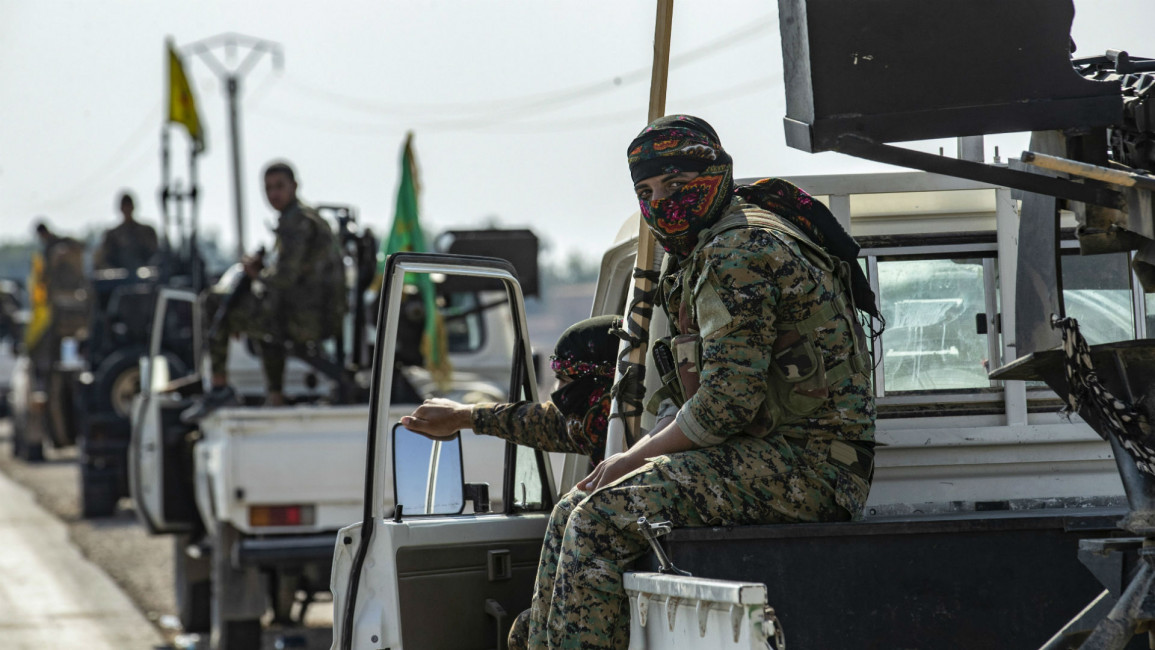Syria Kurds to withdraw from 'entire length' of Turkish-Syrian border after Sochi deal
Kurdish forces said they will redeploy away from the entire length of Syria's northern border in compliance with a Russian-Turkish agreement that will see them replaced by Damascus-backed forces, a statement confirmed on Sunday.
The Kurd-led Syrian Democratic Forces "is redeploying to new positions away from the Turkish-Syrian border" in accordance with the deal signed in Sochi last week, they said in a statement.
"Syrian border guards affiliated with the central government will deploy along the entire length of Syria's border with Turkey," the statement added.
The Syrian Observatory for Human Rights war monitor has said Kurdish-led SDF started pulling out of some areas at the eastern end of the border on Thursday.
On Sunday, an SDF spokesman said Kurdish fighters were withdrawing from border positions.
Mustefa Bali said they will redeploy to positions around 30 kilometres (18.5 miles) away from the frontier.
On Sunday, an AFP correspondent in the Sanjak Saadoun border area near the northern Syrian town of Amuda saw SDF military vehicles carrying personnel and heavy artillery heading south.
The convoy was travelling on a road that connects Amuda to the city of Hasakeh, where Kurdish fighters are present.
Syrian state television said that 45 vehicles withdrew from Sanjak Saadoun.
The Damascus government welcomed the pullout which it said is being carried out in coordination with the Syrian army, state news agency SANA reported on Sunday quoting a foreign ministry statement.
Earlier this week Russia and Turkey signed a deal that will see Russian military police and Syrian border guards "facilitate the removal" of Kurdish People's Protection Units (YPG), which form the backbone of the SDF, from within 30 kilometres of the border.
 |
The Turkey-Russia agreement was reached after marathon talks between President Recep Tayyip Erdogan and President Vladimir Putin in the Black Sea resort of Sochi on Tuesday.
Russian military police conducted the first patrols on Wednesday.
The deal follows the decision by US President Donald Trump to withdraw US troops who were allied with Kurdish forces that bore the brunt of the fight against the Islamic State group in Syria.
In a statement on Sunday, the SDF said it had accepted the deal.
"After extensive discussions with the Russian Federation on our previous objection to some terms of the memorandum, we agreed to the implementation of the deal," it said.
The move came after Erdogan on Saturday warned Turkey would "clear terrorists" on its border in northern Syria if Syrian Kurdish militia did not withdraw by the end of the deadline.
"If the terrorists are not cleared at the end of the 150 hours, we will take control and clean it ourselves," Erdogan said during a speech in Istanbul, referring to the YPG militia which Turkey views as a "terrorist" offshoot of Kurdish PKK insurgents.
Read more: Russia accuses US of 'banditry' after U-turn move to guard Syria's oil
The deadline ends at 6pm local time (1500 GMT) on Tuesday October 29.
Despite his threat, Erdogan said Turkey had "to a large extent" reached its goal in terms of setting up a "safe zone" to protect against attacks from the Islamic State group and the Kurdish YPG militia.
Turkey has repeatedly criticised American support to the YPG, who spearheaded the fight against IS under the Syrian Democratic Forces (SDF) banner.
For Ankara, the YPG is as dangerous as the Kurdistan Workers' Party (PKK), blacklisted as a terror group by Turkey and its Western allies.
Erdogan also urged the international community to support establishing a "safe zone" for some of the 3.6 million Syrian refugees in Turkey.
"If there is no support for the projects we are developing for between one and two million in the first stage for their return, we will have no option but to open our doors, and let them go to Europe," he warned.
After similar threats were accused of being blackmail, Erdogan insisted he was "not blackmailing anyone" but "putting forward a solution”.
Follow us on Twitter and Instagram to stay connected



